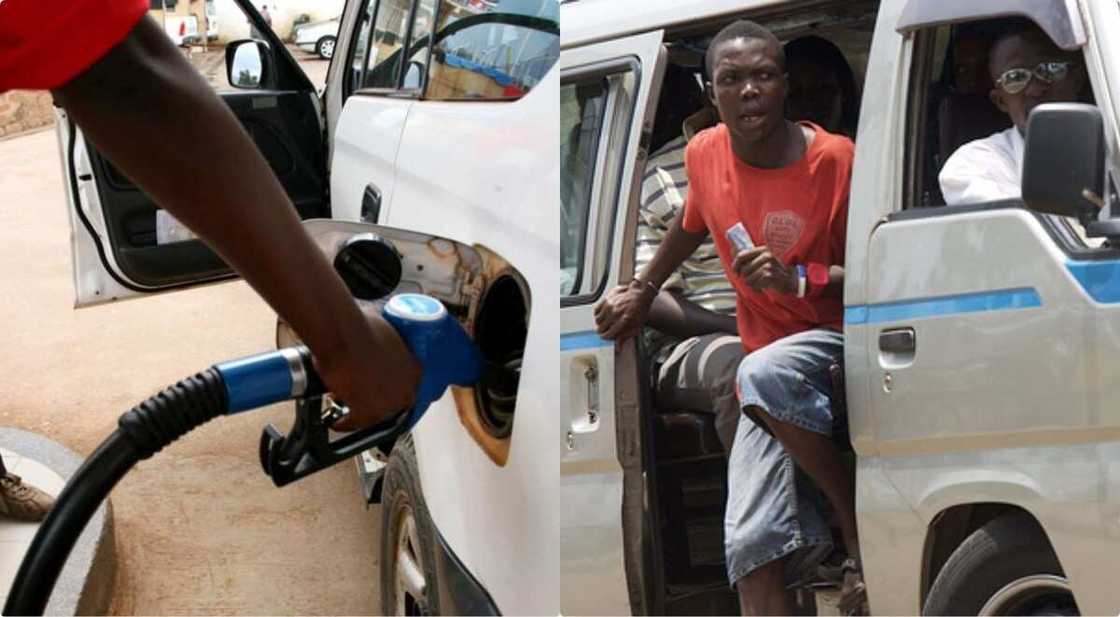Fuel Supply Looks Bleak In The Coming Weeks: COPEC, IES Cite Cedi Fall For Difficult Days Ahead
- Fuel prices are set for yet another round of significant increases from August 16, 2022 to August 31, 2022
- According energy think tanks, IES and COPEC-GH, the cedi depreciation would increase the price of petrol and diesel; COPEC-GH predicts a 5.5% increase, while IES sees a about 3% rise
- This despite a fall of the price of the petroleum products on the international market
- Fuel prices in Ghana have been rising steadily since the start of the year
New feature: Check out news exactly for YOU ➡️ find “Recommended for you” block and enjoy!
Two major energy think tanks have made bleak predictions about Ghana’s fuel supply in the coming days, citing the steep depreciation of the cedi against the dollar.
Both the Chamber of Petroleum Consumers Ghana (COPEC-GH) and the Institute for Energy Security (IES) have cited the cedi fall for an upcoming pump price increase in petrol and diesel.
The IES has said although there is a drop in the prices of petroleum products on the global market, this will not reflect in the pump prices in Ghana because the cedi has been falling against the major trading currencies, especially the dollar.

Source: Original
IES’ assessment of the August 2022 First Pricing Window shows that petrol prices would likely go up by less than 3% from Tuesday, August 16 to August 31.
PAY ATTENTION: Click “See First” under the “Following” tab to see YEN.com.gh News on your News Feed!
Research Analyst at IES, Mr. Fritz Moses, told the Ghana News Agency that:
“But for the cedi depreciation, prices of petrol and diesel would have reduced by about 5%.”
COPEC-GH makes a similar prediction but predicts higher pump price increases from August 16.
The notable energy institution announced on Monday, August 15, 2022, that diesel and petrol prices would likely go up by some 5.5% despite the price drop on the global petroleum market.
“Between the current first pricing window and the next fuel pricing window of the month of August, which commences from tomorrow, August 16, 2022, crude oil price has seen a drop by 4.53% from $110.52 averagely to $105.51 per barrel, whilst that of finished products ( petrol and diesel ) have declined by an average of 7.5%,” a statement attributed to COPEC-GH Executive Director, Duncan Amoah, explained.
Over the last two weeks, the Ghana cedi has depreciated by 5.40%, from the previous GH¢8.35 to $1 the current GH¢8.83 to $1.
In Ghana, fuel prices have surged by some 65% between March 2021 and March 2022.
Energy Expert Proposes Three Things Government Can Do To Solve The Situation
Meanwhile, YEN.com.gh reported in a previous story that because the fuel price in Ghana is strongly linked to the economy and general living conditions, higher prices mean higher levels of goods and services.
When fuel prices go up, food and everything else record a surge in price. This is why the constant bi-weekly fuel price increases remain a worry for many experts.
YEN.com.gh spoke exclusively to energy expert, Duncan Amoah, on real solutions the government can adopt to stabilise fuel price.
New feature: Check out news exactly for YOU ➡️ find "Recommended for you" block and enjoy!
Source: YEN.com.gh



